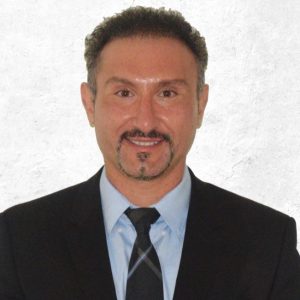
Mr. Ohanian is the Information Security Officer for Los Angeles (LA) County Department of Children and Family Services (DCFS), the largest child welfare institution in the nation. He has 20 years of experience in information technology, cybersecurity and defense strategies, risk management, forensics, privacy, compliance, cloud security, business continuity, and software engineering in the private and public sectors. Before DCFS, he served as the first Information Security and Privacy Officer at LA County Counsel. He established an Information Security and Privacy program and ensured compliance with legal mandates.
As a scholarly-practitioner, visionary, and innovative Information Security Officer, Mr. Ohanian has architected and implemented cybersecurity and privacy programs from the ground up, interwoven cybersecurity into the business culture, creating a security-conscious enterprise, and assertively achieved the organization’s mission of service excellence through outstanding leadership, governance, strategic planning, business acumen, and cost-saving transformation initiatives.
Mr. Ohanian is an active member of various Cybersecurity taskforce and workgroups, leads and oversees the Countywide Risk Management Cybersecurity Team responsible for developing and implementing administrative, technical, and tactical strategies to assess and reduce cybersecurity risks to County information assets.
Mr. Ohanian has been a keynote speaker and panel member in numerous private and public sector conferences. He is a Ph.D. Dissertation Committee Member for Cybersecurity using Artificial Intelligence at Center for Information Systems & Technology Claremont Graduate University.
Mr. Ohanian has a Bachelor’s degree in Computer Science from Cal Poly Pomona (magna cum laude) and obtained his dual Master’s Degree in Cybersecurity and Business Administration at the University of Maryland (UMUC). He is currently pursuing a Ph.D. in Industrial/Organizational Psychology program




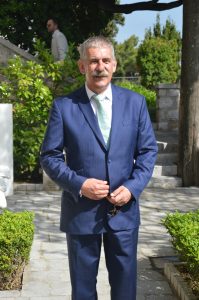 Born at a very early age and growing up in a culture where cyber was a prefix for anything automated, menacing and malevolent (how history has a tendency of repeating itself), Marcus entered the world of Data Processing as it was known back then after graduating from university. Lured by the flashing console lights (it was also the disco era), the whirl of the magnetic tape and the click clack of the keypunch machine (TSO was still a dream), Marcus became a COBOL programmer, becoming prolific in Michael Jackson’s structured programming methodology (who would have known what future lay ahead for Michael). Having moved into analysis and then data architecture Marcus became the first devolved Information Risk and Security Manager for Barclaycard. After seven years in that role he moved banks and became Head of Information Security for Abbey National plc, now Santander UK. After six years at Abbey and a move into consulting for a large UK utilities company Marcus joined KPMG as a Principal Advisor. Eighteen months later he joined Lloyd’s of London as its CISO and subsequently became its Head of Digital Risk Management and Compliance, also embracing responsibility for data protection and privacy, during his 10 years tenure there. Having worked in IT for over 40 years, specialising in information risk, protection, security and compliance for the latter 27 years or so, Marcus decided to leave full-time corporate life and move to the South Coast of England in mid-2017, ever the seafaring Fisherman’s Friend. As well as being a proud member of the Pulse Conferences family, Marcus now undertakes advisory engagements, provides pro bono consulting and volunteering services and sits on the Cymmetria Advisory Board as Chief Risk Officer.
Born at a very early age and growing up in a culture where cyber was a prefix for anything automated, menacing and malevolent (how history has a tendency of repeating itself), Marcus entered the world of Data Processing as it was known back then after graduating from university. Lured by the flashing console lights (it was also the disco era), the whirl of the magnetic tape and the click clack of the keypunch machine (TSO was still a dream), Marcus became a COBOL programmer, becoming prolific in Michael Jackson’s structured programming methodology (who would have known what future lay ahead for Michael). Having moved into analysis and then data architecture Marcus became the first devolved Information Risk and Security Manager for Barclaycard. After seven years in that role he moved banks and became Head of Information Security for Abbey National plc, now Santander UK. After six years at Abbey and a move into consulting for a large UK utilities company Marcus joined KPMG as a Principal Advisor. Eighteen months later he joined Lloyd’s of London as its CISO and subsequently became its Head of Digital Risk Management and Compliance, also embracing responsibility for data protection and privacy, during his 10 years tenure there. Having worked in IT for over 40 years, specialising in information risk, protection, security and compliance for the latter 27 years or so, Marcus decided to leave full-time corporate life and move to the South Coast of England in mid-2017, ever the seafaring Fisherman’s Friend. As well as being a proud member of the Pulse Conferences family, Marcus now undertakes advisory engagements, provides pro bono consulting and volunteering services and sits on the Cymmetria Advisory Board as Chief Risk Officer.
 A French and Swiss citizen, Dimitri Chichlo started his career abroad in Ukraine in 2004, working for French industrial and banking groups, then moved to Switzerland in 2009, working mainly for international financial institutions and holding various roles in the fields of risk management and cybersecurity. In 2017, he completed an Executive MBA at INSEAD. In 2019, he joined the Supervisory board of Ukreximbank, the third largest and State-owned bank in Ukraine, as vice-chairman and chair of the Operations and Digital Committee. In 2020, he founded his consultancy practice in cybersecurity and digital transformation, AndSecure (
A French and Swiss citizen, Dimitri Chichlo started his career abroad in Ukraine in 2004, working for French industrial and banking groups, then moved to Switzerland in 2009, working mainly for international financial institutions and holding various roles in the fields of risk management and cybersecurity. In 2017, he completed an Executive MBA at INSEAD. In 2019, he joined the Supervisory board of Ukreximbank, the third largest and State-owned bank in Ukraine, as vice-chairman and chair of the Operations and Digital Committee. In 2020, he founded his consultancy practice in cybersecurity and digital transformation, AndSecure ( George has been working in the cybersecurity field for over 25+ years concentrating on the building and operating cybersecurity programs. He specializes in the transformation of cybersecurity, winning customer trust, and ensuring a strong cybersecurity posture for organization. George has extensive experience in maturing global cybersecurity programs and teams. He has extensive experience in securing applications (products and services), securing core IT infrastructure and cloud workloads, and maintaining a robust incident response capability. George leads global teams in cybersecurity, data privacy, governance, risk, compliance (GRC), and implementation of security frameworks, Working closely stakeholders across functions, the global programs he developed has ensured security is baked into products and services at birth. Before joining Gojek and GoTo Financial, George served as the global Chief Cybersecurity Officer (CISO) at Equinix where he built the global cybersecurity program from inception. Previous to that he worked at Exodus (Savvis / Century Link), and Tivo in senior security leadership roles. He began his career at the National Aeronautics and Space Administration (NASA) where he collaborated with senior federal officials to secure government information assets. George serves on customer advisory boards for several cybersecurity firms and is an advisor for venture capital. He is a frequent speaker and panelist at cybersecurity industry events.
George has been working in the cybersecurity field for over 25+ years concentrating on the building and operating cybersecurity programs. He specializes in the transformation of cybersecurity, winning customer trust, and ensuring a strong cybersecurity posture for organization. George has extensive experience in maturing global cybersecurity programs and teams. He has extensive experience in securing applications (products and services), securing core IT infrastructure and cloud workloads, and maintaining a robust incident response capability. George leads global teams in cybersecurity, data privacy, governance, risk, compliance (GRC), and implementation of security frameworks, Working closely stakeholders across functions, the global programs he developed has ensured security is baked into products and services at birth. Before joining Gojek and GoTo Financial, George served as the global Chief Cybersecurity Officer (CISO) at Equinix where he built the global cybersecurity program from inception. Previous to that he worked at Exodus (Savvis / Century Link), and Tivo in senior security leadership roles. He began his career at the National Aeronautics and Space Administration (NASA) where he collaborated with senior federal officials to secure government information assets. George serves on customer advisory boards for several cybersecurity firms and is an advisor for venture capital. He is a frequent speaker and panelist at cybersecurity industry events.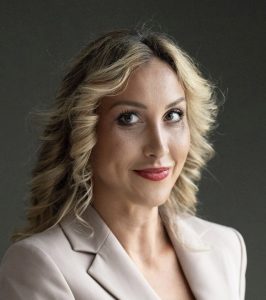 Respected and leading CISO, awarded the CISO of the year for 2019 in Luxembourg, Sentinel CISO Global 2020, EU CISO 2020, and recently Ambassador of the year 2021 in Luxembourg. Versatile and innovative Cybersecurity professional with emphasis on cyber security risk management, policies and procedures creation, IT/IS security, IT Operations, audit, risk mitigation, business process improvement, IT governance. Passionate about participation and encouragement of women in cybersecurity and in STEM programs.
Respected and leading CISO, awarded the CISO of the year for 2019 in Luxembourg, Sentinel CISO Global 2020, EU CISO 2020, and recently Ambassador of the year 2021 in Luxembourg. Versatile and innovative Cybersecurity professional with emphasis on cyber security risk management, policies and procedures creation, IT/IS security, IT Operations, audit, risk mitigation, business process improvement, IT governance. Passionate about participation and encouragement of women in cybersecurity and in STEM programs.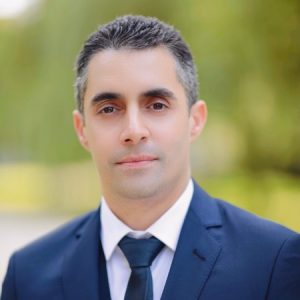 Karim Benslimane is Darktrace’s Director of Cyber Intelligence, working with clients in the public and private sector to analyse the most sophisticated cyber-threats today, and advising security professionals on the employment of artificial intelligence to strengthen their defensive strategy. Prior to joining Darktrace, Karim was Information & Communication Director at the Singapore Sports Hub, Head of IT at Vinci Stadium, and the IT Research & Development Manager at Stade de France. Karim is a technical specialist in cyber and counter-terrorism exercises with over two decades of experience defending the sports and event industry from sophisticated threats. He has led major IT and cyber security projects for international arenas and events such as the Football World Cup, Rugby World Cup, World Athletics Championships and over 500 games and concerts. He is based in Singapore.
Karim Benslimane is Darktrace’s Director of Cyber Intelligence, working with clients in the public and private sector to analyse the most sophisticated cyber-threats today, and advising security professionals on the employment of artificial intelligence to strengthen their defensive strategy. Prior to joining Darktrace, Karim was Information & Communication Director at the Singapore Sports Hub, Head of IT at Vinci Stadium, and the IT Research & Development Manager at Stade de France. Karim is a technical specialist in cyber and counter-terrorism exercises with over two decades of experience defending the sports and event industry from sophisticated threats. He has led major IT and cyber security projects for international arenas and events such as the Football World Cup, Rugby World Cup, World Athletics Championships and over 500 games and concerts. He is based in Singapore.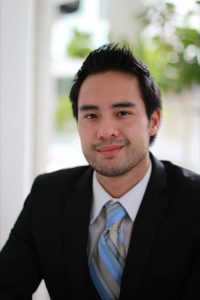 Kawin has over 20 years of experience across business management and information technology and security roles, with expertise in building information security programs across the North America and Asia region. He has previously served as Chief Cyber Technologist at Booz Allen Hamilton, CEO of Cybertron in Thailand and Managing Director, APAC at Qualys. Kawin has dedicated his free time serving as co-founder and Executive Committee Member on the (ISC)2 Singapore Chapter. Recently, he is also the co-founder of the Singapore CIO Network (SCION), a group that strives to build a community of like-minded information and cybersecurity professionals in Singapore. He received his Bachelor of Arts in Economics from the University of Pennsylvania, Master’s degree in Business Management and Systems from New York University and had performed his Ph.D. studies and research at Singapore Management University.
Kawin has over 20 years of experience across business management and information technology and security roles, with expertise in building information security programs across the North America and Asia region. He has previously served as Chief Cyber Technologist at Booz Allen Hamilton, CEO of Cybertron in Thailand and Managing Director, APAC at Qualys. Kawin has dedicated his free time serving as co-founder and Executive Committee Member on the (ISC)2 Singapore Chapter. Recently, he is also the co-founder of the Singapore CIO Network (SCION), a group that strives to build a community of like-minded information and cybersecurity professionals in Singapore. He received his Bachelor of Arts in Economics from the University of Pennsylvania, Master’s degree in Business Management and Systems from New York University and had performed his Ph.D. studies and research at Singapore Management University. Kevin Pang is an evangelist of BeyondTrust solutions to key enterprise customers in the APJ. He has been in the IT industry for more than a decade and has extensive experience in cybersecurity. Prior to joining BeyondTrust, Kevin was a trusted advisor with a key SI and has more than five years’ experience in the Privileged Access Management domain
Kevin Pang is an evangelist of BeyondTrust solutions to key enterprise customers in the APJ. He has been in the IT industry for more than a decade and has extensive experience in cybersecurity. Prior to joining BeyondTrust, Kevin was a trusted advisor with a key SI and has more than five years’ experience in the Privileged Access Management domain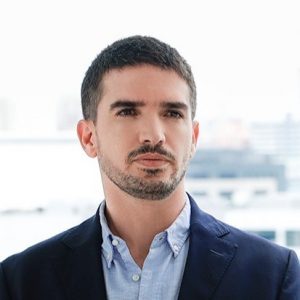 With over two decades of experience in both the public and private sectors, leading and managing cybersecurity operations. Lavy is the global head of SCB’s Cyber Defense & Threat management and was previously the head of Israel’s National Cyber Directorate’s CERT. He spent the majority of his career in the financial industry, working for FIBI – First International Bank of Israel – and the led the ISA’s finance cyber division (Israel security agency). Lavy is a senior cybersecurity leader with substantial field experience and an in-depth understanding of the cyber warfare ecosystem at both the corporate and governmental levels, as well as significant expertise in developing world-class cybersecurity services. Expertise in risk management, monitoring and analytics, and intelligence aspects of cyber security. Proven competence and experience in SIEM, SOC, SOAR, and incident response technologies, solutions, strategies, and research, as well as skills and experience with data analytics/big data/machine learning. Lavy is also a venture capital consultant that focuses in identifying innovative Fintech technologies as a mentor in accelerators throughout the world. Contributing to worldwide programs coordinated by FSISAC and the World Economic Forum, as well as confounding Israel’s pioneering finSec national lab (owned by MasterCard Group and Enel X). Lavy earned a bachelor’s degree in information technology and business administration from Herzliya’s Interdisciplinary Center (IDC), one of Israel’s most internationally acclaimed and well-known universities. Lavy is a certified corporate director and an alumnus of the Cyber Security Risk Management program at Harvard University.
With over two decades of experience in both the public and private sectors, leading and managing cybersecurity operations. Lavy is the global head of SCB’s Cyber Defense & Threat management and was previously the head of Israel’s National Cyber Directorate’s CERT. He spent the majority of his career in the financial industry, working for FIBI – First International Bank of Israel – and the led the ISA’s finance cyber division (Israel security agency). Lavy is a senior cybersecurity leader with substantial field experience and an in-depth understanding of the cyber warfare ecosystem at both the corporate and governmental levels, as well as significant expertise in developing world-class cybersecurity services. Expertise in risk management, monitoring and analytics, and intelligence aspects of cyber security. Proven competence and experience in SIEM, SOC, SOAR, and incident response technologies, solutions, strategies, and research, as well as skills and experience with data analytics/big data/machine learning. Lavy is also a venture capital consultant that focuses in identifying innovative Fintech technologies as a mentor in accelerators throughout the world. Contributing to worldwide programs coordinated by FSISAC and the World Economic Forum, as well as confounding Israel’s pioneering finSec national lab (owned by MasterCard Group and Enel X). Lavy earned a bachelor’s degree in information technology and business administration from Herzliya’s Interdisciplinary Center (IDC), one of Israel’s most internationally acclaimed and well-known universities. Lavy is a certified corporate director and an alumnus of the Cyber Security Risk Management program at Harvard University.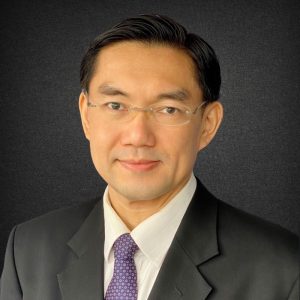 Leonard has over 20 years of experience in Information, Cyber and Corporate Security gained in telecommunication, enterprise, banking, pharmaceutical, healthcare and medical technology sectors. He is the Regional Information Security Officer, Intercontinental & China for GE Healthcare. Prior to that, he was the Group Chief Information Security Officer for a leading vertically integrated healthcare platform in the Asia Pacific. He led Governance, Risk Management, Compliance (GRC) service for Asia Pacific region in MSD International (also known as Merck & Co., Inc.). In his earlier career, He was with Barclays Capital as the Head of Global Information Security Risk & Operation, Asia pacific. Leonard is passionate on volunteering with several International and Singapore-based security associations since 2003. His longest service is with ISACA Singapore Chapter where he has been elected as Chapter President for two consecutive terms. Leonard has also served ASIS International Chapter as Honorary Chairman for 3 years. He is still serving in ASIS International as Community Vice President. Leading information security associations, such as (ISC)2 and ASIS International, have recognized his contributions. He was awarded Information Security Leadership Achievement (ISLA) in Senior Information Security Professional category in 2011 and Professional Certification Board (PCB) Regional Award in 2014. National Infocomm Competency Centre (NICC) has awarded Leonard with ‘IT Specialist of the Year’ in 2005. He was instrumental in achieving K. Wayne Snipes 2013 award for ISACA Singapore Chapter being the best very large chapter in Asia with over 2,500 professional members. International Data Group (IDG) and CEO|CIO Club recognized Leonard with CSO ASEAN Honoree award in 2015 and as ASEAN CSO30 in 2021. Following that, in 2016, He was presented with ISACA’s Paul Williams Award for Inspirational Leadership. Leonard was successfully selected as Finalist in the inaugural AISP-CSA Cybersecurity Award 2018 in senior leaders’ category. In July 2020, Leonard will be inducted into ISACA Hall of Fame. The designation recognizes members who have shown exemplary dedication to advancing ISACA’s purpose through volunteer service, member engagement and other activities. Leonard holds Master of Computing from National University of Singapore (NUS) and is a Fellow with Singapore Computer Society.
Leonard has over 20 years of experience in Information, Cyber and Corporate Security gained in telecommunication, enterprise, banking, pharmaceutical, healthcare and medical technology sectors. He is the Regional Information Security Officer, Intercontinental & China for GE Healthcare. Prior to that, he was the Group Chief Information Security Officer for a leading vertically integrated healthcare platform in the Asia Pacific. He led Governance, Risk Management, Compliance (GRC) service for Asia Pacific region in MSD International (also known as Merck & Co., Inc.). In his earlier career, He was with Barclays Capital as the Head of Global Information Security Risk & Operation, Asia pacific. Leonard is passionate on volunteering with several International and Singapore-based security associations since 2003. His longest service is with ISACA Singapore Chapter where he has been elected as Chapter President for two consecutive terms. Leonard has also served ASIS International Chapter as Honorary Chairman for 3 years. He is still serving in ASIS International as Community Vice President. Leading information security associations, such as (ISC)2 and ASIS International, have recognized his contributions. He was awarded Information Security Leadership Achievement (ISLA) in Senior Information Security Professional category in 2011 and Professional Certification Board (PCB) Regional Award in 2014. National Infocomm Competency Centre (NICC) has awarded Leonard with ‘IT Specialist of the Year’ in 2005. He was instrumental in achieving K. Wayne Snipes 2013 award for ISACA Singapore Chapter being the best very large chapter in Asia with over 2,500 professional members. International Data Group (IDG) and CEO|CIO Club recognized Leonard with CSO ASEAN Honoree award in 2015 and as ASEAN CSO30 in 2021. Following that, in 2016, He was presented with ISACA’s Paul Williams Award for Inspirational Leadership. Leonard was successfully selected as Finalist in the inaugural AISP-CSA Cybersecurity Award 2018 in senior leaders’ category. In July 2020, Leonard will be inducted into ISACA Hall of Fame. The designation recognizes members who have shown exemplary dedication to advancing ISACA’s purpose through volunteer service, member engagement and other activities. Leonard holds Master of Computing from National University of Singapore (NUS) and is a Fellow with Singapore Computer Society. Shih Hsien joined Certis Group in October 2021 and is responsible for coordinating the technology masterplanning and data governance initiatives, as well as overseeing the CISO and CSO Offices.
Shih Hsien joined Certis Group in October 2021 and is responsible for coordinating the technology masterplanning and data governance initiatives, as well as overseeing the CISO and CSO Offices.
 Leong Boon is currently the Head of IT Security at NUS Information Technology, responsible for security governance, risk management, security operations, incident response and user awareness across the entire University.
Leong Boon is currently the Head of IT Security at NUS Information Technology, responsible for security governance, risk management, security operations, incident response and user awareness across the entire University. Oakley is a technical expert with 5 years’ experience as a Cyber Analyst. After leading a team of Cyber Analysts at the Cambridge headquarters, he relocated to New Zealand and now oversees the defense of critical infrastructure and industrial control systems across the APAC region. His research into cyber-physical security has been published by Cyber Security journals and CISA. Oakley is GIAC certified in Response and Industrial Defense (GRID), and has a Doctorate (PhD) from the University of Oxford.
Oakley is a technical expert with 5 years’ experience as a Cyber Analyst. After leading a team of Cyber Analysts at the Cambridge headquarters, he relocated to New Zealand and now oversees the defense of critical infrastructure and industrial control systems across the APAC region. His research into cyber-physical security has been published by Cyber Security journals and CISA. Oakley is GIAC certified in Response and Industrial Defense (GRID), and has a Doctorate (PhD) from the University of Oxford. Lady Olga Maitland, Founder, Defense and Security Forum and Chairman, Copenhagen Compliance – has wide experience in all major Governance, risk Management and Compliance issues in general and global Fraud and Corruption problems in particular. She is a special adviser to a number of dignitaries and a widely sought after speaker at all Major Conferences on several Corporate Governance issues. Lady Olga is a former British MP for the Conservative party. Prior to her political career she was a reporter for the Fleet Street News Agency, a columnist in the London.
Lady Olga Maitland, Founder, Defense and Security Forum and Chairman, Copenhagen Compliance – has wide experience in all major Governance, risk Management and Compliance issues in general and global Fraud and Corruption problems in particular. She is a special adviser to a number of dignitaries and a widely sought after speaker at all Major Conferences on several Corporate Governance issues. Lady Olga is a former British MP for the Conservative party. Prior to her political career she was a reporter for the Fleet Street News Agency, a columnist in the London.
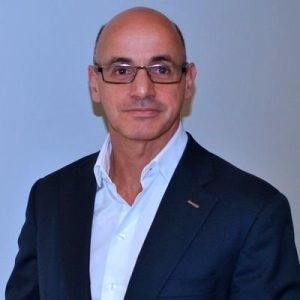
 Mark joined HUMAN Security in January 2021 to lead and build an international technical sales team across EMEA and APAC. He has held several global and EMEA responsible senior leadership roles at such vendors as Trend Micro, Bitdefender, and Malwarebytes culminating in more than 20 years of experience in cyber security. His role at HUMAN Security focuses him on ensuring HUMAN’s product offerings add maximum value by mapping the technical solution to a business issue.
Mark joined HUMAN Security in January 2021 to lead and build an international technical sales team across EMEA and APAC. He has held several global and EMEA responsible senior leadership roles at such vendors as Trend Micro, Bitdefender, and Malwarebytes culminating in more than 20 years of experience in cyber security. His role at HUMAN Security focuses him on ensuring HUMAN’s product offerings add maximum value by mapping the technical solution to a business issue. Joined AXA XL Singapore as the Cyber & Technology PI Manager for Asia in February 2020. Prior to the move worked for Allianz in London for 7 years where he played a vital role in the development of Cyber & Technology PI portfolio.
Joined AXA XL Singapore as the Cyber & Technology PI Manager for Asia in February 2020. Prior to the move worked for Allianz in London for 7 years where he played a vital role in the development of Cyber & Technology PI portfolio.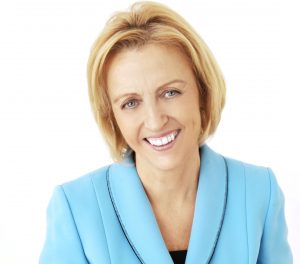 Dr Leivesley has experience in catastrophic risk, global media commentary, government and private sector incidents, exercising and advising on loss prevention and recovery. Her prime focus is on the protection of life and critical infrastructure from extreme threats. She has worked with global USA corporations on risk strategy for catastrophic incidents using exercises with Boards and facilitating executive meetings. In 2021 she presented to the Baker Institute, Rice University on vulnerabilities in the energy sector and nuclear conflict risks in the South and East China seas. In 2015 she presented to the Electrical Infrastructure Security Council’s conference in the Capitol Building on Black Swan risks.
Dr Leivesley has experience in catastrophic risk, global media commentary, government and private sector incidents, exercising and advising on loss prevention and recovery. Her prime focus is on the protection of life and critical infrastructure from extreme threats. She has worked with global USA corporations on risk strategy for catastrophic incidents using exercises with Boards and facilitating executive meetings. In 2021 she presented to the Baker Institute, Rice University on vulnerabilities in the energy sector and nuclear conflict risks in the South and East China seas. In 2015 she presented to the Electrical Infrastructure Security Council’s conference in the Capitol Building on Black Swan risks.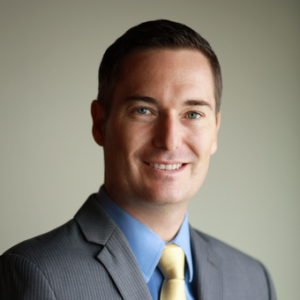

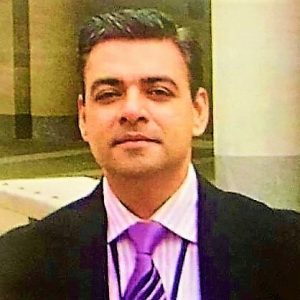 Tarun is a seasoned professional with 23+ years of ‘exclusive’ experience in areas covering Cyber / Information Security, IT Risk Management, Data Protection and Privacy. In his leadership roles, he has had the distinction of building Cyber Security capabilities (people, process & technology) grounds up for organizations (with extensive experience in managing large teams).
Tarun is a seasoned professional with 23+ years of ‘exclusive’ experience in areas covering Cyber / Information Security, IT Risk Management, Data Protection and Privacy. In his leadership roles, he has had the distinction of building Cyber Security capabilities (people, process & technology) grounds up for organizations (with extensive experience in managing large teams).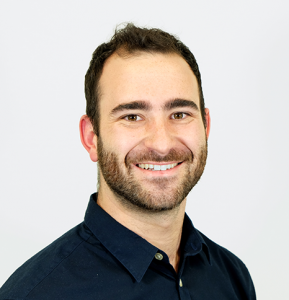 Thomas leads the strategic intelligence portfolio at Dragonfly, a global political risk intelligence firm. His background is in intelligence. He has extensive experience providing business-enabling security and political intelligence and analysis to some of the world’s most influential organisations. In recent years, he has increasingly worked with CISOs and other cyber professionals to help them understand how the geopolitical threat environment affects the cyber domain. Thomas holds a MA in International Relations from the University of Melbourne.
Thomas leads the strategic intelligence portfolio at Dragonfly, a global political risk intelligence firm. His background is in intelligence. He has extensive experience providing business-enabling security and political intelligence and analysis to some of the world’s most influential organisations. In recent years, he has increasingly worked with CISOs and other cyber professionals to help them understand how the geopolitical threat environment affects the cyber domain. Thomas holds a MA in International Relations from the University of Melbourne. Tobias Gondrom joined UOB in 2018 and is the Group Chief Information Security Officer. He is responsible for ensuring the end-to-end information security in UOB and implementing all cyber security initiatives across the Bank. Tobias has more than 20 years of experience in information security, software development, application security, cryptography, electronic signatures and global standardisation strategies.
Tobias Gondrom joined UOB in 2018 and is the Group Chief Information Security Officer. He is responsible for ensuring the end-to-end information security in UOB and implementing all cyber security initiatives across the Bank. Tobias has more than 20 years of experience in information security, software development, application security, cryptography, electronic signatures and global standardisation strategies.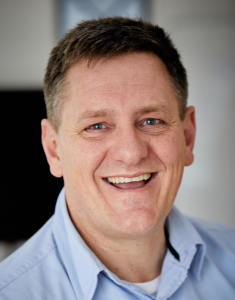 Widely regarded as a passionate cyber security ambassador and global cyber evangelist, Tony Smith is a Board Member and Director at WithSecure – Europe’s largest cyber security specialist.
Widely regarded as a passionate cyber security ambassador and global cyber evangelist, Tony Smith is a Board Member and Director at WithSecure – Europe’s largest cyber security specialist.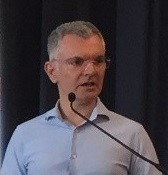 More than two decades of professional experience in information management and governance, with particular focus on information security, risk management and assurance for large multilateral public sector organizations with global presence. Actively contributing to inter-organizational working groups for establishing policies, standards, and guidelines in the area of information security, personal data protection, awareness programs, risk analysis and metrics. Conducting research in cryptography, data protection regulation, and risk management. I’ve started professional career in information technology in the year of the release of Mosaic Web browser, Intel Pentium CPU, Microsoft Windows NT, Debian Linux, Doom computer game… Since the Internet bubble, teaching computer science and telecommunications courses as adjunct faculty at Computer Science Department of Webster University in Geneva. Actively contributing to academic program advancement as a member of the Scientific Committee for Advanced Studies in Information Security at the Department of Management Studies of the Faculty of Economic and Social Sciences at the University of Geneva. Advocating advancement in information security as an author in journals and as a speaker at professional conferences.
More than two decades of professional experience in information management and governance, with particular focus on information security, risk management and assurance for large multilateral public sector organizations with global presence. Actively contributing to inter-organizational working groups for establishing policies, standards, and guidelines in the area of information security, personal data protection, awareness programs, risk analysis and metrics. Conducting research in cryptography, data protection regulation, and risk management. I’ve started professional career in information technology in the year of the release of Mosaic Web browser, Intel Pentium CPU, Microsoft Windows NT, Debian Linux, Doom computer game… Since the Internet bubble, teaching computer science and telecommunications courses as adjunct faculty at Computer Science Department of Webster University in Geneva. Actively contributing to academic program advancement as a member of the Scientific Committee for Advanced Studies in Information Security at the Department of Management Studies of the Faculty of Economic and Social Sciences at the University of Geneva. Advocating advancement in information security as an author in journals and as a speaker at professional conferences.